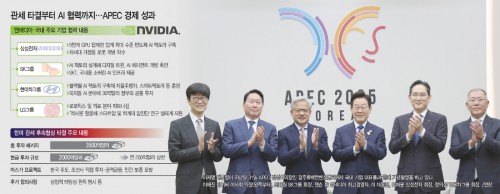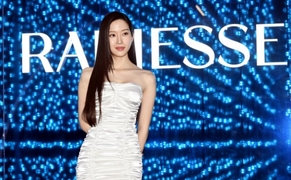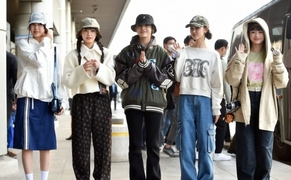 |
South Korea wrapped up the 2025 APEC Summit in Gyeongju with major wins on both trade and technology, securing a breakthrough in stalled tariff negotiations with the United States and forging powerful AI partnerships with global tech giants.
During the U.S.–Korea summit on October 29, the two countries finalized follow-up talks on a $350 billion investment package. Seoul agreed to contribute $200 billion in cash—capped at $20 billion annually—under conditions guaranteeing commercial returns and priority participation for Korean firms. The compromise was widely viewed as balanced, easing months of trade friction.
The deal brought relief to the auto industry, as Washington set tariffs on Korean vehicles at 15 percent instead of 25 percent, reversing heavy losses for Hyundai and Kia. Hyundai Chairman Chung Eui-sun reportedly told President Lee Jae-myung he “owed the government a great debt” for the result.
AI cooperation became the centerpiece of APEC. Nvidia CEO Jensen Huang agreed to supply 260,000 GPUs—worth about ₩14 trillion—to Korean public agencies and major firms including Samsung, Hyundai, SK, and Naver. His informal “chicken-and-beer meeting” with Samsung’s Lee Jae-yong and Hyundai’s Chung Eui-sun symbolized Korea’s new AI alliance.
Other global tech leaders joined in: AWS pledged over $5 billion for AI data centers in Incheon and Gyeonggi Province, complementing SK Group’s ₩7 trillion Ulsan project. Microsoft, Google, and Meta also expressed plans for deeper cooperation.
Analysts said the APEC outcomes mark a turning point for Korea’s economy—reducing trade uncertainty, expanding its AI ecosystem, and reaffirming the country’s rise as a central hub for next-generation technology.
Most Read
-
1
-
2
-
3
-
4
-
5
-
6
-
7





















